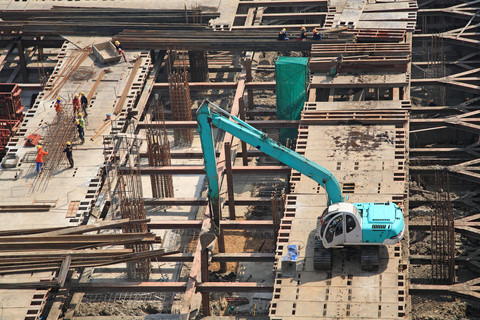Danish organization of transnational construction workers

Danish unions have been successful in enacting existing institutions and organising the construction of the Copenhagen Metro City Ring. In a new article in the scientific journal Work, Employment and Society, Jens Arnholtz and Bjarke Refslund analyze how unions succeed in organizing this transnational workforce, despite several subcontracting firms that actively sought to circumvent Danish labour-market regulation.
Transnational workers in large construction projects are often poorly integrated in the national labour-market regulation, which causes that current collective agreements are not always enforced. However, Danish unions have succeeded in organizing transnational workers at the Copenhagen Metro Ring, despite the fact that the workers come from many different countries and are employed by a number of different contractors and subcontractors who have actively sought to circumvent Danish labour-market regulation.
Trade unions have thus been able to change their organizational and enforcement strategies so that they better include transnational workers in Denmark. This involves an effort to create shared goals and identities across different groups of workers and actively seeking changes to the public owners' attitude to employment conditions at the Copenhagen Metro City Ring.
Read the full article 'Active Enactment and Virtuous Circles of Employment Relations: How Danish unions organized the transnationalized Copenhagen Metro Construction Project' by Jens Arnholtz and Bjarke Refslund. (requires login)
